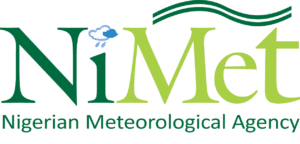Nigeria’s low tax GDP ratio poses challenges — Senate President
…Tasks CITN to improve efforts on tax collection in ICT sector
Abimbola Abatta and Seth Akande
The Senate President, Ahmad Ibrahim Lawan, has drawn attention to the country’s low tax GDP ratio, noting that many companies in Nigeria default in the payment of taxes.
He noted that the problem of lack of effective tax collection has led to extreme loss at the national level.
The Senate President spoke on Wednesday at the 2021 Business Luncheon facilitated by the Chartered Institute of Taxation of Nigeria (CITN) and held in Lagos State.
Speaking on the theme: “Digital Currency Technology and e-Naira: Nature and Implications for Taxation,” Lawan said the Information and Communications Technology (ICT) is the second largest sector of the economy which is driving growth in the non-oil sector in Nigeria.
He was, however, quick to note that while this presents a possibility for opportunities, it comes with the challenge of tax collection.
Represented by the Senior Adviser on Economic Matters to the Senate President, Professor Nasifi Abdullahi, the Senate President questioned: “How do you improve tax collection on economic activities that are progressingly becoming digital? What is the level of tax that you need to impose that is not too much to the growth of that sector? What is the probability component?”
He, therefore, called on the CITN and other relevant bodies to put efforts in place to improve tax collection in the ICT sector.
Lawan noted that the issues of tax stagnation have been generating concern at stakeholders’ meetings with efforts heightened to identify alternative sources of financing the development of Nigeria.
His words, “In planning development and prosperity even as it relates to specific sectors cannot be accomplished successfully without collaborating efforts as a nation. The multi-dimensionality and interaction and complimentality of our individual actions as profession would not be limited.
“That is why the more professional bodies like CITN cooperate with small professional bodies the better for Nigeria economy.
“Few days ago, the National Bereau of Statistics (NBS) released a sad GDP report, and we all are living witnesses of the fact that they currently achieve 4.3% growth rates in comparison with the 2nd quarter. But the curious thing is, from the last 5 quarters of the GDP report which was reviewed, agriculture is a leading sector of the economy but fortunate enough to see, the ICT is the second largest sector of the economy which is driving growth in the non-oil sector.
“This second placement of the ICT as the second largest non-oil sector that is driving the economy is now a possibility for opportunity but it also has challenges. Possibility in the sense that it indicates that our population which is 65% of 35years below is digitally sound and economic activities are progressingly migrating from the normal trading of economics activities into cyber space.
“Now this is an opportunity to expand economically and improve income but also a challenge. How do you improve tax collection on economic activities that are progressingly becoming digital? What is the level of tax that you need to impose that is not too much to the growth of that sector? What is the probability component? What are the possible chances of the nation? What are the challenges associated with all these. These are some of the issues CITN and other professional bodies need to put in place.
“The second issue I want to talk about is that our low tax GDP ratio is a challenge and also an opportunity. It is a challenge in the sense that it indicates low tax collections to what we have been collecting. The aggregate collection as at September this year is only 4%, meaning so many companies are not paying taxes.
“If it is a problem at the federal level to effectively collect taxes, especially with its tax collecting bodies, you could imagine the extreme losses in the national level where most of the states’ administration capacity tax collection is very low.
“A lot of businesses have been talking about multiplicity of taxation which in actual sense is making business development strong. What is the specific role of the CITN must play to avoid over taxation? At the same time what partnership can CITN bring particularly to state and local government towards scaling tax collections problems and putting up structures for tax collection in line with the improved digital oriented of our economic with the fact we are living in a global village where everything is digital?” he ended.
Earlier, the CITN President, Adesina Adedayo said the organisation aims to seek sustainable source of generating revenue for government to fulfill its obligation to the citizens.
Explaining the rationale behind the theme of the 2021 business luncheon, he said, “To a large extent, policies at the monitoring and physical levels have considerable impact on the tax system. It is on this basis that we have the thematic focus for this luncheon: ‘Digital Currency Technology and e-naira, Nature and Implication for Taxation.’
“The objectives of this programme include: to review government policy decisions on its potential impact on the economy and the tax system; provide a feedback mechanism for policy makers and government; to provide an opportunity to interact with corporate business leaders, policy makers, members of the organisation, organising private sector and professionals; bring to form issues in tax administration that impact on the ease of paying taxes and doing business; citizens’ expectations from government and its agencies in terms of service delivery and gain an appraised expectations of stakeholders.
“It is pertinent to inform you that the outcome of our deliberation will be articulated as a position paper to the government and relevant stakeholders as it relates to policy formulation.”




